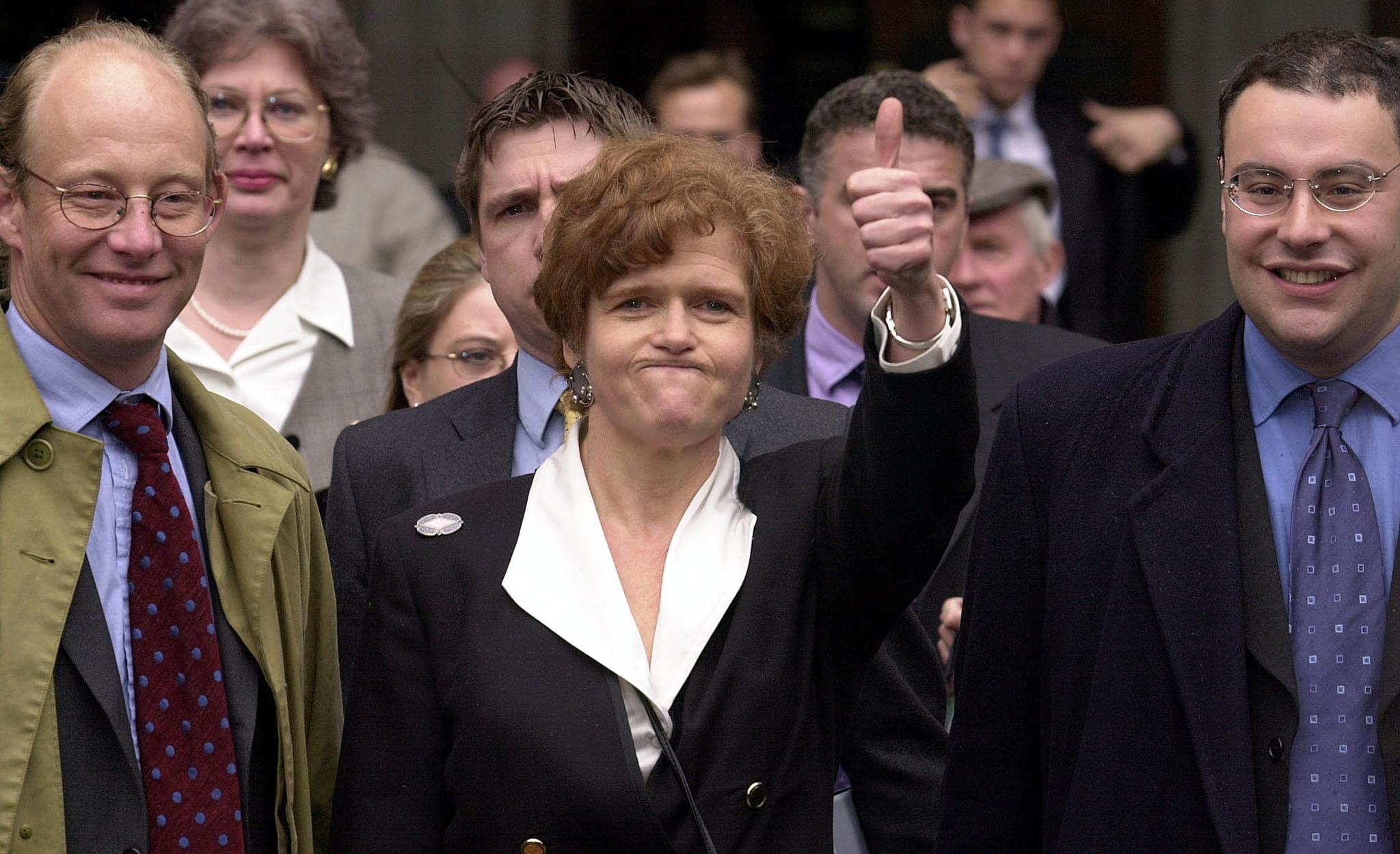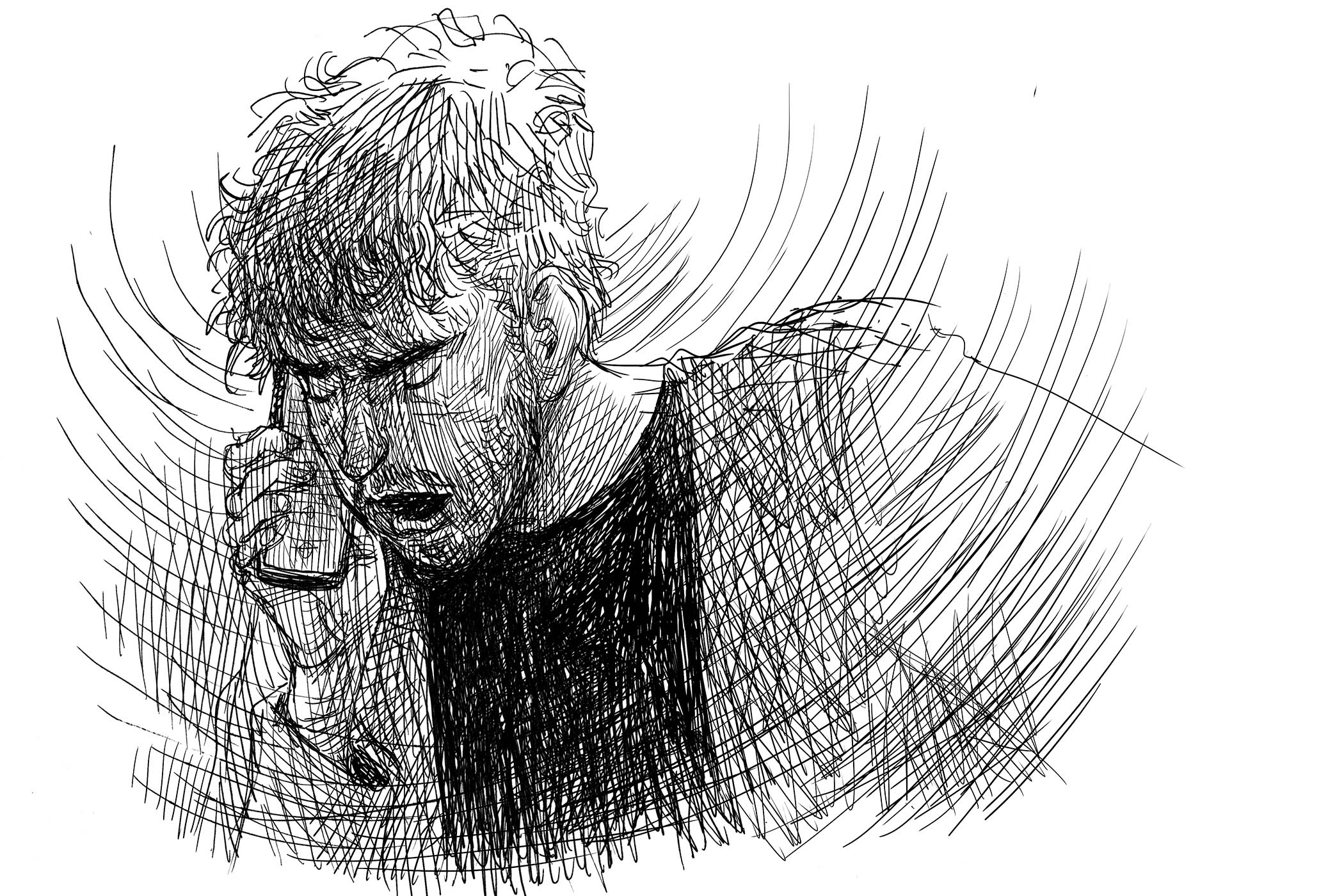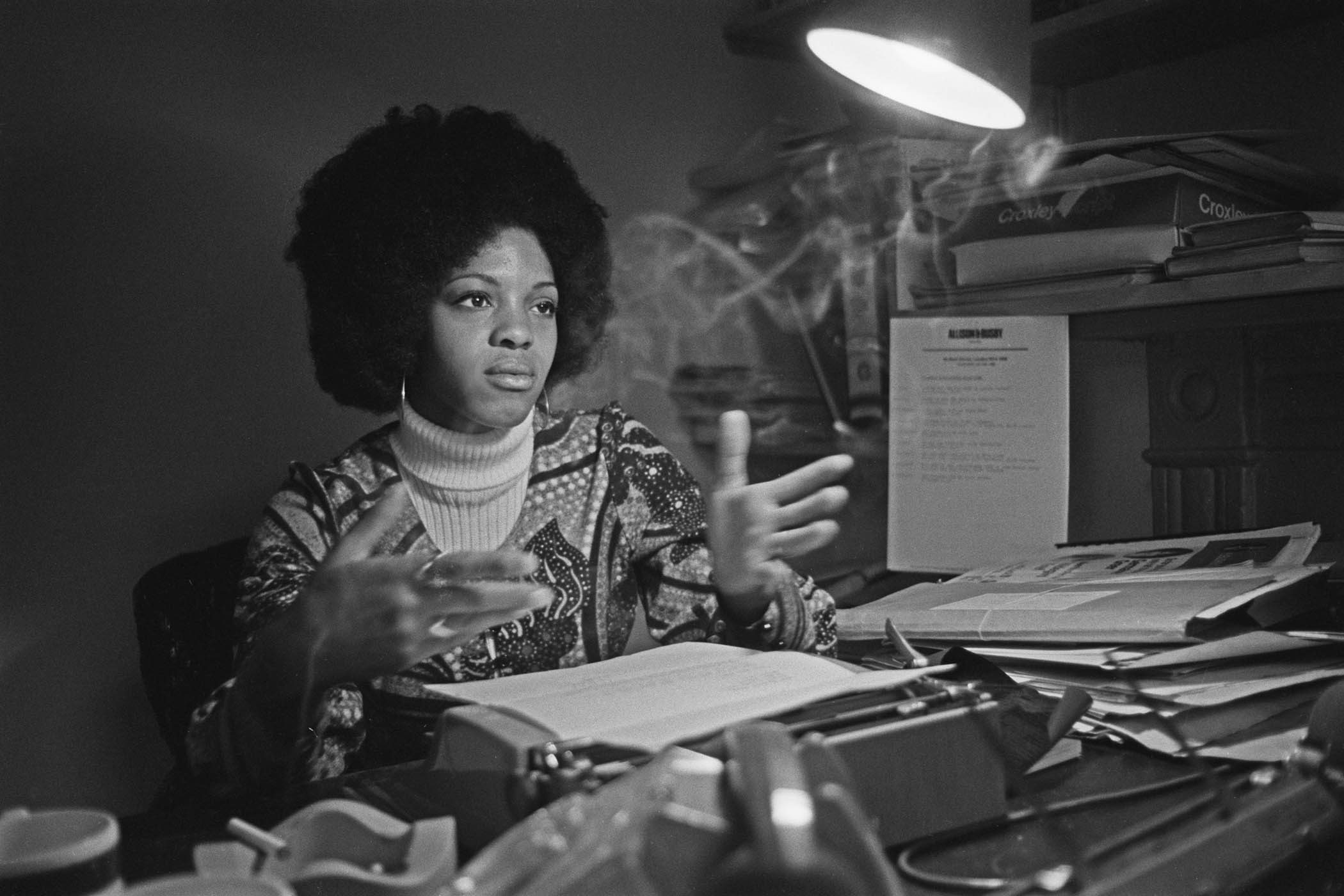I have been in London to mark the 25th anniversary of my legal battle with David Irving. He had accused me of libelling him in my book Denying the Holocaust – in which I said he was a Hitler partisan, a Holocaust denier, and one of the most dangerous spokespersons for Holocaust denial.
I vividly remember the moment I opened a letter from my publisher, Penguin, informing me that I was being sued. The burden of proof was on my shoulders, a daunting prospect. Unsure of my next steps, I reached out to a friend, who recommended Anthony Julius, from the law firm Mishcon de Reya, as my lawyer.
There were people, including prominent historians, who thought I was wasting my time. “Don’t bother fighting. No one believes him when he claims the Holocaust did not happen.” The problem was that if I did not contest the case, it would mean conceding Irving’s claims. He and, more importantly, his distortions of history would have gained great traction. I couldn’t allow him to win.
Anthony and James Libson, along with my wonderful QC, the late Richard Rampton, determined our legal strategy. We were not proving the Holocaust happened. That is beyond dispute. We were demonstrating that Irving lied and completely mangled the historical record. As Rampton said in his opening statement: “He is not a historian. He is a liar.”
Up until this case, no one had taken the time to demonstrate how Irving lied and how he distorted the enormous and incontrovertible evidence. We assembled a top-tier team of historians to follow his evidence back to the original sources. Their meticulous research proved that, in virtually every instance, he distorted, invented, selectively quoted, and misrepresented the evidence.
Our approach proved to be the right one.
On 11 April 2000, in a 355-page judgment, Justice Charles Gray decided in our favour. The degree of detail in the judgment was astonishing, affirming what we knew in our hearts – that Irving was a liar and that Holocaust denial is a form of antisemitism.
While I have been here this week, talking about the case and meeting up with many of the people who supported me through the trial, I have reflected a lot on the lessons we can draw in today’s climate of rising antisemitism.
Related articles:
We are witnessing a disturbing resurgence of antisemitism and Holocaust denial. Too often we read about attacks on Jewish communities. We see vandalism and hear threats.
High-profile incidents, such as statements made by Kanye West, highlight the persistence of these dangerous ideologies.
Newsletters
Choose the newsletters you want to receive
View more
For information about how The Observer protects your data, read our Privacy Policy
And now, through social media, there are online delivery systems that spread hate with alarming speed and reach.
Holocaust denial has evolved over the years. I categorise it into “hardcore” and “softcore” forms. While hardcore denial is less common today, softcore denial – minimising the Holocaust’s significance or blaming Jews – is more prevalent.
Fighting softcore denial often feeling like a game of whack-a-mole. This form of denial is insidious, as it distorts and inverts historical facts, making it challenging to counter.
But at its centre, whatever form Holocaust denial takes, it is about antisemitism and must be called out as such.
Under the previous administration, I was the US State Department envoy to monitor and combat antisemitism; I have frequently spoken out about antisemitism globally and in the United States.
The online generation often has a blurred understanding of historical evidence and critical thinking
The online generation often has a blurred understanding of historical evidence and critical thinking
Undeniably, the exponential rise in social media, the fragmentation of the traditional media landscape and the speed with which our information systems are evolving is a huge challenge. In my case, in the year 2000, the law upheld the truth. We are now confronted with the question whether the legal system is equipped to handle denial and distortion in the era of social media.
My view is ultimately a hopeful one. Because whilst harm and hate are spread at an alarming rate, our online lives are a double-edged sword, and the internet also offers a platform for education and advocacy. By leveraging these channels, we can reach a wider audience, promoting accurate historical narratives and countering falsehoods. We must use these platforms to educate and inform, ensuring that the truth is accessible to all.
My trial serves as a reminder of the importance of upholding historical truth. In an age where misinformation spreads rapidly online, reinforcing evidence-based history is crucial. The online generation often has a blurred understanding of historical evidence and critical thinking. A refresher course in establishing truth, akin to what my legal team and I achieved in 2000, is essential today. By reinforcing the importance of evidence-based history, we can equip individuals with the tools to discern fact from fiction.
It is also a reminder that, while there are situations when the hatemongers should be ignored, there are moments when they must be confronted and exposed. This was one of those moments. My trial reminds us of the power of truth and the importance of standing up against hate.
The fight is ongoing, and it requires vigilance and commitment from all of us. We must continue to challenge falsehoods and promote the historical truth to ensure that the horrors of the past are neither forgotten nor repeated.
There are haters and distorters of history today and there will be more in the future. We must be willing to challenge them and expose their mendacity and their lies.


